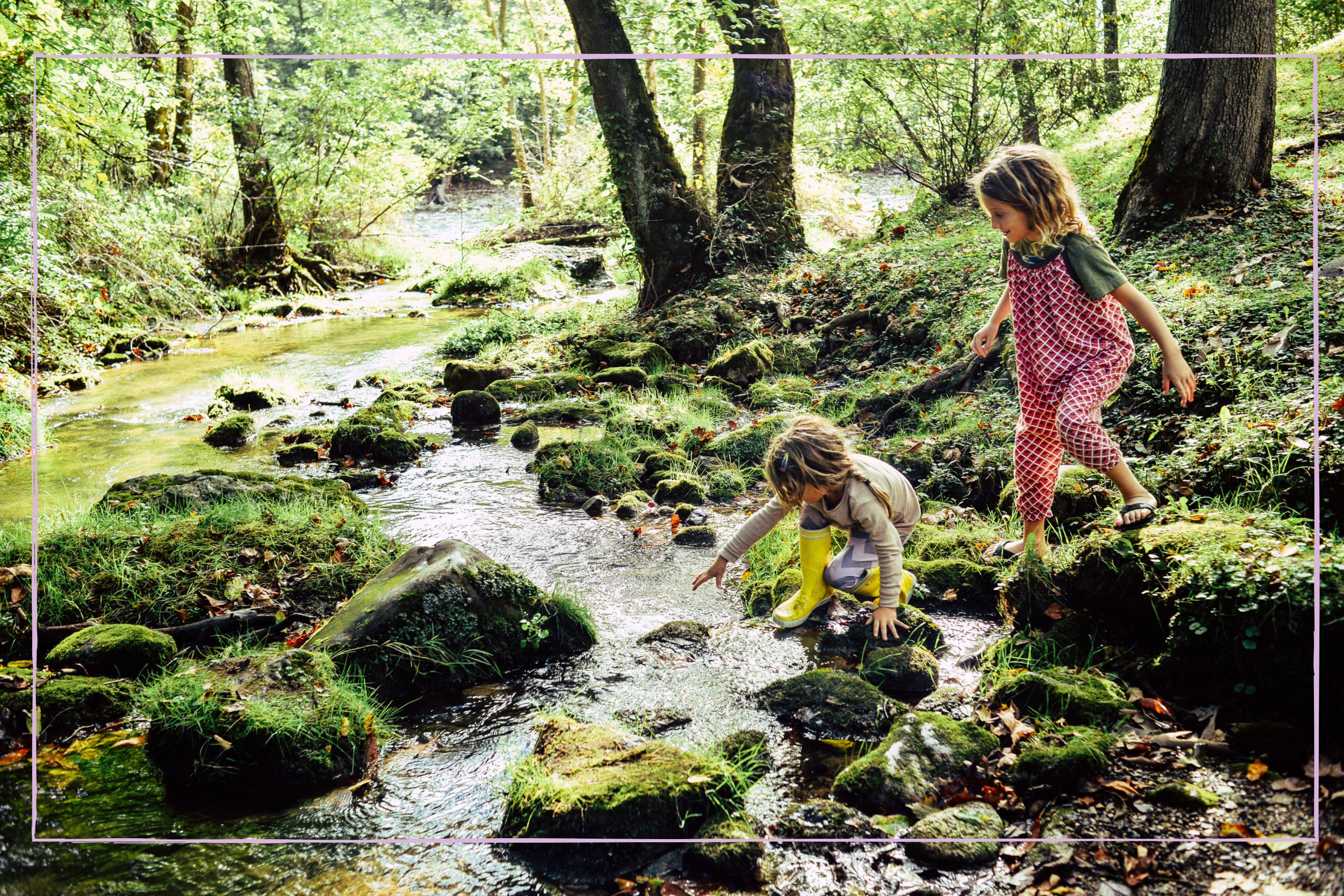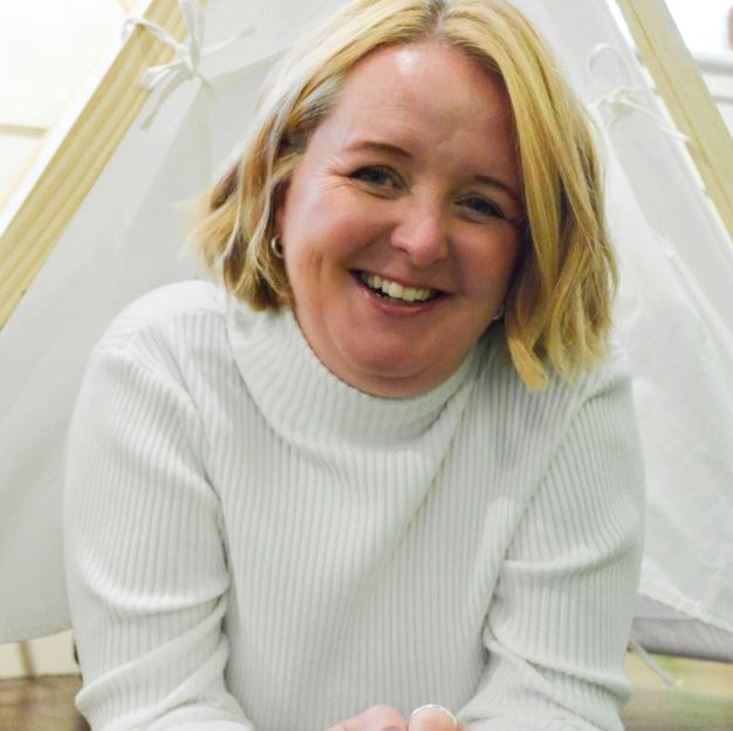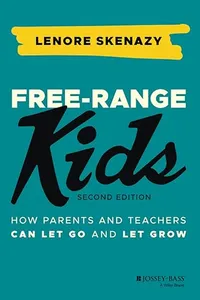Free range parenting: Is it really controversial and how can it benefit your child? We ask an expert
We share what families need to know about the parenting method


If you've heard of free range parenting and want to know more about it, we've asked a parenting expert to share what you need to know to decide if it's right for you.
There's a few parenting styles popular at the moment, and families are sure to find one that aligns with their values and how they hope to shape their kids. Some are more favoured than others - gentle parenting and authoritative parenting have a large following and online experts can be found endorsing them and singing their praises.
As the world changes and understanding of parenting psychology grows, child rearing methods evolve and different methods appear all the time. Free range parenting is one of the newer kids on the block, and parents might be interested to know more about it and whether it suits the needs of their family.
To find out more about free range parenting, we spoke to our GoodtoKnow resident panellist and child development expert, Dr Amanda Gummer, who tells us what free range parenting entails and the pros and cons of the method, while addressing ideas that it's a controversial way to raise your kids.
What is free range parenting?
Essentially the antithesis of helicopter parenting, free range parenting involves plenty of unscheduled activities, preferably involving outdoor play and nature. Children playing outside create their own games with their own rules, and are encouraged to shun activities involving adult enforced rules.
Engaging in risky play while being free range is thought to increase resilience and independence - as kids learn to make safety decisions independently, they're allowed further freedoms and offered more responsibility. Parents are encouraged to let go of fear when their kids go free range; they don't strictly enforce safety measures and let kids try and fail at new activities, even if means they might get a little hurt along the way.
Dr Gummer tells us "Free-range parenting is about giving kids more freedom to explore and make their own decisions. It's a response to the trend of over-parenting, where parents can be a bit too controlling and overprotective. The idea here is to step back a little and trust children to navigate their own experiences. It's about letting them learn and grow without constant supervision."
Parenting advice, hot topics, best buys and family finance tips delivered straight to your inbox.
"Essentially the antithesis of helicopter parenting, free range parenting involves plenty of unscheduled activities, preferably involving outdoor play and nature."
The idea of free range parenting was coined in 2008 by Lenore Skenazy, a writer from New York. After her nine-year-old son Izzy, begged her to let him be dropped off somewhere in the city and find his own way home, she let him do just that. She then wrote wrote an article about it, titled "Why I Let My 9-Year-Old Ride the Subway Alone."
She describes taking her son for lunch in the city, before leaving him in the Bloomingdales handbag department with a map, a MetroCard, and money for emergencies. He arrived home 45 minutes later, delighted with himself, and Skenazy decided to write about the experience - and it exploded, with numerous TV appearances happening after she was accused of child neglect.
Not to be discouraged, she started her free range parenting website, Free Range Kids, and has been growing the movement ever since. In her book, Free-Range Kids: How Parents and Teachers Can Let Go and Let Grow, Lenore Skenazy outlines the 14 principles or 'commandments' of free range parenting. Here is an overview of them:
- Know when to worry - don't view everything as a risk
- Turn off the news - it could frighten parents out of free range parenting
- Avoid experts - they don't always know what's right for your family
- Boycott baby knee pads - know which safety measures are essentially and ones you can do without
- Don't think like a lawyer - don't look for dangers that aren't there
- Ignore blamers - people might blame your parenting method if your children get hurt, but kids get hurt all the time
- Eat chocolate - a little never hurt anybody
- Study history - seeing that children would've been blacksmiths and chimney sweeps puts modern parenting into perspective
- Be worldly - other countries naturally engage in free range parenting, don't be put off by what everyone around you is doing
- Be brave - don't try and control everything around you, because it doesn't work
- Relax - not every single thing you do will impact your child's development
- Fail - Skenazy calls this 'the new succeed'
- Get kids outside - prioritise outdoor play
- Listen to your kids - they don't want to be treated like babies with no autonomy
Free-Range Kids: How Parents and Teachers Can Let Go and Let Grow by Lenore Skenazy £12.85 | Amazon
Lenore Skenazy delivers a compelling look at how we got so worried about everything our kids do, and wants us to bid that anxiety goodbye in her book outlining the principles and how to implement free range parenting.
The pros and cons of free range parenting
Pros: Speaking to Dr Gummer about the pros of free range parenting, she tells us "On the plus side, it helps kids become more independent and resilient. They get to tackle challenges and figure things out on their own, which can boost their confidence."
Those who follow free range parenting believe children learn failure is temporary and be overcome, and left to work out things for themselves increases their ability to problem-solve effectively. Research also shows it can help with a child's social development.
Cons: Talking about the cons, Dr Gummer says "If taken too far, it can leave kids feeling unsafe or overwhelmed. I believe to thrive, children need a healthy mix of age appropriate freedom and boundaries. They need to know they're supported, but also that they have room to make their own choices and control over the aspects of their lives that it’s safe for them to control."
Although Lenore Skenazy lives in New York and advocates free range parenting in any area, there will definitely be parts of the world where it's too dangerous for children to be free range. It can also blur lines between making decisions about what children can tolerate without adult input and what is deemed neglect - concerns have been raised that parents would use the excuse 'free range' to leave children home alone when they're too young.
Is free range parenting controversial?
Yes it is - because of the nature of children having so much free reign for parents using the method, free range parenting has come under scrutiny. Some believe it is controversial, and Dr Gummer can see both sides of the argument.
She says "It can certainly stir up controversy. Some people do worry it exposes kids to too many risks, while others feel it's a necessary step towards raising self-sufficient adults. I think it’s about finding the right balance - ensuring kids are safe while also allowing them the freedom to grow."

She adds "In my opinion, children need more agency than they often get, but that doesn't mean throwing caution to the wind. It's crucial to provide guidance and boundaries while also giving them the space to explore and make their own choices. As with any parenting approach, it depends on the child and the family's circumstances."
Is free range parenting right for me?
All families are different, and you'll have a few variables to weigh up before deciding whether to follow this method.
Dr Gummer gave a balanced response when we asked whether parents should embrace free range parenting, sharing "I'm with the majority of professionals when I say that free-range parenting can be a good approach if done thoughtfully and in an age-appropriate manner. It's great for fostering independence and confidence in kids.
However, it's crucial to pair that freedom with appropriate boundaries and support. Every child is different, so it's all about finding the right fit for your family and ensuring that your child feels secure and supported while also having the chance to explore and learn on their own."
For more on parenting methods, you might enjoy reading our permissive parenting, tiger parenting, and therapeutic parenting explainers.

Dr Amanda Gummer has a PhD in Neuropsychology, the Postgraduate Certificate in Higher Education and more than 20 years’ experience working with children and families. As such, she is renowned as an expert on all aspects of child development, including toys and play. In 2012, she founded The Good Play Guide, an independent, expert accreditation service for children’s products, including toys, apps and more.

Lucy is a mum-of-two, multi-award nominated writer and blogger with six years’ of experience writing about parenting, family life, and TV. Lucy has contributed content to PopSugar and moms.com. In the last three years, she has transformed her passion for streaming countless hours of television into specialising in entertainment writing. There is now nothing she loves more than watching the best shows on television and sharing why you - and your kids - should watch them.
